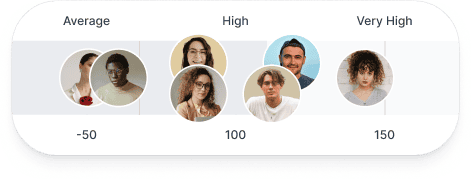First off, let’s address the elephant in the room. Life coaching is not a regulated profession. So pretty much anyone can create a LinkedIn profile, build a website, and start calling themselves a life coach.
Thankfully, most potential clients are pretty savvy. They'll look for a life coach with the qualifications and experience that meets their needs. When comparing coaches, they'll look for accredited coach training programs. They may also consider their ongoing professional development and years of coaching experience.
So, let’s take a look at what education, training, and certifications might put you ahead of the pack.
What higher education might clients be interested in?
What you studied at university is probably not going to be the first consideration of potential coaching clients. Degrees in psychology, sociology, or learning and development might show a long interest in this area. But they’re not crucial for being a successful coach.
There are two notable exceptions. Life coaches with a specialization in health or business may have some useful insights from their formal education. But remember that being an effective coach means the session is not about you! You’re not there to give advice or mentor your client. Effective coaches can have pretty much any educational background and still be fantastic in the role.
The second exception is a recently-established pathway. This pathway uses psychology or other relevant degrees as a springboard for coaching higher education. It’s not yet widely offered by universities. And it may take longer and cost more than traditional routes into coaching. One example is the MSc in Applied Positive Psychology and Coaching Psychology offered by the University of East London, UK.
What licenses, certifications, and registrations are needed?
Professional life coaching is an unregulated industry. But there are several international coaching bodies that govern training standards and practice. The most well-known is the International Coaching Federation (ICF). Two others are the Association for Coaching and the European Mentoring and Coaching Council.
These organizations provide comprehensive training directories. They'll help you find a life coach certification program via an accredited training institution. These types of life coach training programs often need significant time and financial investment. But they're worth it for the extensive number of teaching hours and the opportunity for mentorship and supervision.
What on-job internships or apprenticeships are typically undertaken?
Becoming a certified life coach often requires delivering a significant amount of coaching hours. Building a portfolio of verified work experience is critical for accreditation by governing bodies such as the ICF.
Internships or apprenticeships aren’t necessary to become a professional life coach. However, they can help coaches build up their experience while working to become a certified life coach. These types of roles may be found in coaching consultancies or agencies. Verified work experience may also be gained while building a freelance life coaching business.
Some businesses also run an in-house coaching service. Working in-house is great for newly-qualified coaches. They can practice their skills on other employees while working toward their accreditation. And, potentially, while retaining their day job. Reputable governing bodies also provide mentoring and coaching supervision for new coaches.
What advancement or specialization opportunities are there?
Life coaches can choose from almost unlimited continuous professional development (CPD) opportunities. These may include life coach training courses, event attendance, webinars, and workshops.
Advanced coaches may also choose to become accredited coach trainers or coaching mentors. These qualifications enable more experienced life coaches to deliver training to would-be coaches. They may also mentor newly-qualified coaches and help them improve their coaching skills.
Life coaches may also choose to augment their coaching practice with other specializations. This is especially true if they are self-employed. For example, a wellness coach may decide to pursue a nutrition qualification. This increases the number of services they can offer clients.
Some coaches might decide they want to return to school. They might want to gain an undergraduate, post-graduate, or doctoral-level coaching qualification. Or they might pursue a complementary area of study, such as psychology.
CPD enables life coaches to offer a more multifaceted service to their clients. This means they may attract more clients than competitors and may be able to charge more. Building an attractive website and increasing your social media presence can also help. And don’t forget to ask satisfied clients for a testimonial. Word-of-mouth is a powerful tool for growing a successful coaching business.











.png)








%20(1)-2.png)
